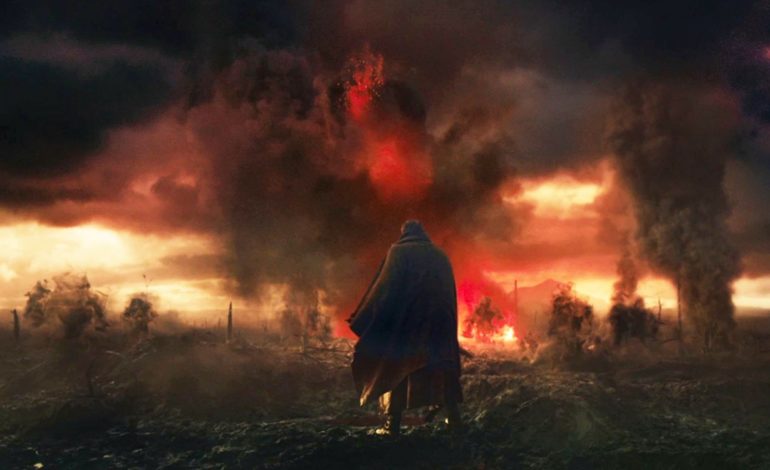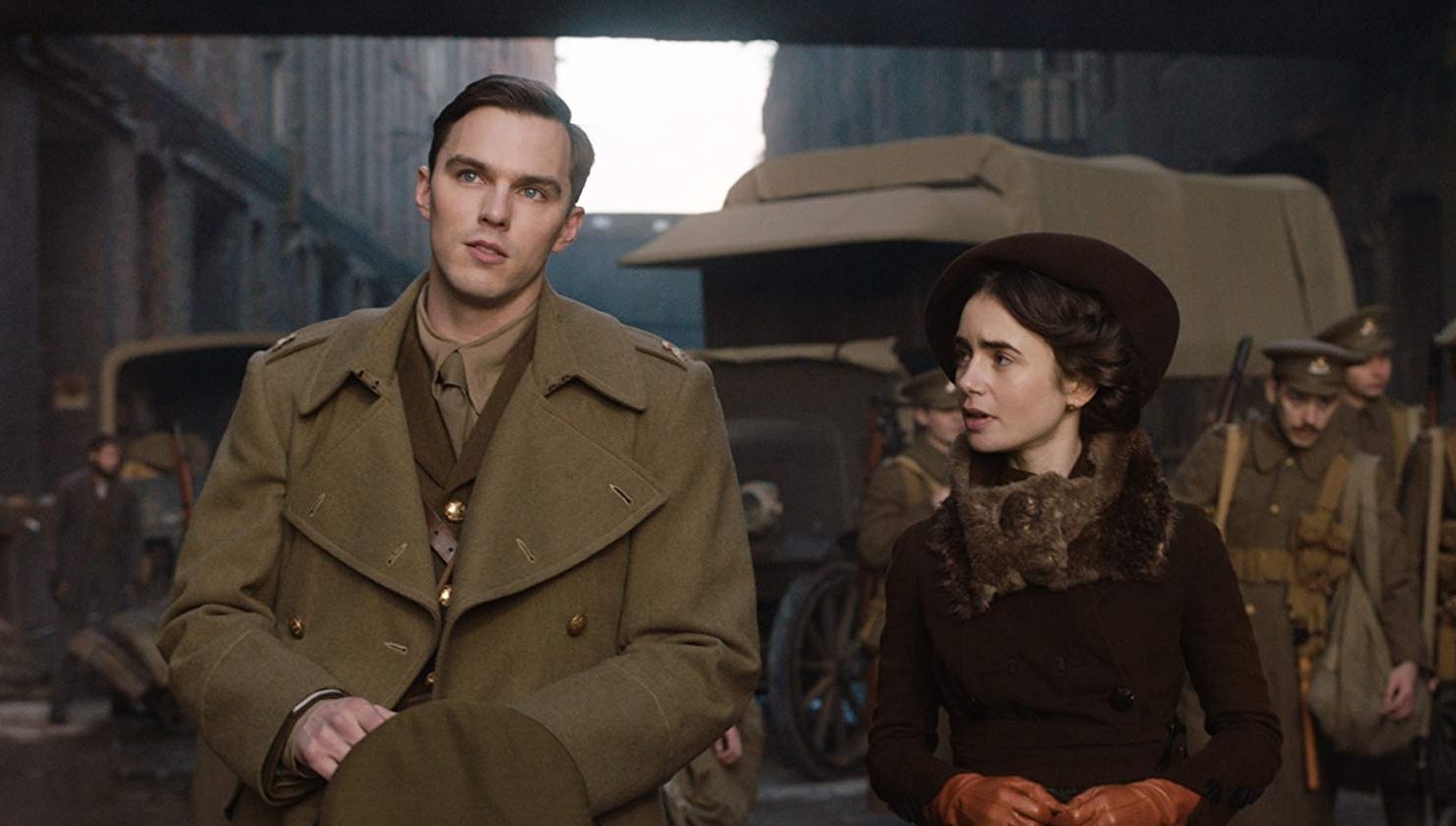 By Jacob Sahms
By Jacob Sahms
The battle wages on both all around him and in his head. Is this the desolate wasteland of Mordor or the Battle of the Somme in the the First World War?
For John Ronald Reuel Tolkien, J.R.R. to his millions of fans, the narrative of The Hobbit and its subsequent works was a fantasy-influenced exploration of language and meaning in a world that had seen too much bloodshed and death. Thanks to director Dome Karukoski’s Tolkien, new and old fans will find themselves connecting the dots between Tolkien’s life and his most famous works.
While highly intelligent and incredibly literate, the younger version of the soldier-turned-college professor was orphaned early, and disregarded due to his lack of family stature. But a keen eye for languages and an empathetic heart led him to form the Tea Club and Barrovian Society with Rob Gilson, Geoffrey Bache Smith and Christopher Wiseman, young men who would forever shape his understanding of both language and friendship. It is then, at King Edward’s School, that Tolkien was shaped as a linguist and grew as a person of faith, under the watchful eye of his guardian, the Catholic priest Father Francis Xavier Morgan.
 It’s also when he fell in love with Edith Emily Bratt, who inspired The Silmarillion’s Lúthien Tinúviel, and also became his wife. And suddenly, the pieces of Tolkien’s fantasy come into clear focus within the reality of the early twentieth century world in which he lived.
It’s also when he fell in love with Edith Emily Bratt, who inspired The Silmarillion’s Lúthien Tinúviel, and also became his wife. And suddenly, the pieces of Tolkien’s fantasy come into clear focus within the reality of the early twentieth century world in which he lived.
The scrappy little people who must fend for themselves.
The incredible beauty to be found in romantic relationships and lifelong friendships.
The terrible agony of war and its violence on both the body and the soul.
 While Tolkien provides the drama, the romance, the angst of a solid feature film, it accomplishes even more in opening our eyes to the brilliance of the author/poet in constructing an original world to deal with his own inner pain, and untangle the mythical, spiritual pull and push of a bigger causality. His Roman Catholic upbringing is visually represented – and the influence of Father Francis proves to be invaluable over and over again. For this, Christian fans of J.R.R. Tolkien will take great joy in seeing the life of an influencer, now even into the twenty-first century. And they will see how love became his everything, his driving force, his north star, his reminder that his purpose was in community, not isolation, in fellowship, not in some solo journey.
While Tolkien provides the drama, the romance, the angst of a solid feature film, it accomplishes even more in opening our eyes to the brilliance of the author/poet in constructing an original world to deal with his own inner pain, and untangle the mythical, spiritual pull and push of a bigger causality. His Roman Catholic upbringing is visually represented – and the influence of Father Francis proves to be invaluable over and over again. For this, Christian fans of J.R.R. Tolkien will take great joy in seeing the life of an influencer, now even into the twenty-first century. And they will see how love became his everything, his driving force, his north star, his reminder that his purpose was in community, not isolation, in fellowship, not in some solo journey.
Tolkien shows that the fellowship is real, and that in the end, only love can save us.




